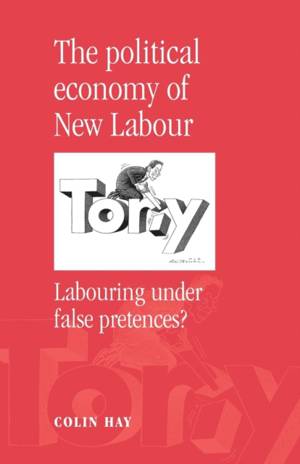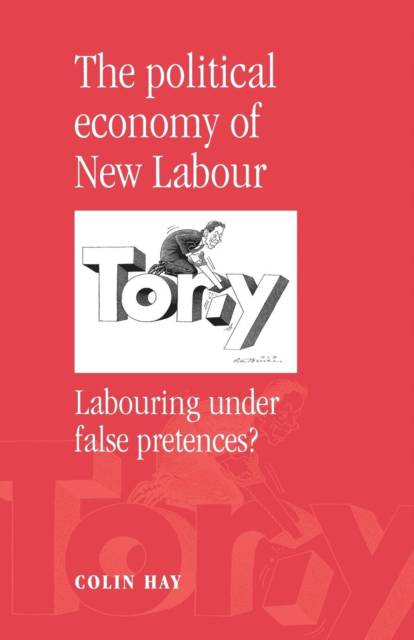
Je cadeautjes zeker op tijd in huis hebben voor de feestdagen? Kom langs in onze winkels en vind het perfecte geschenk!
- Afhalen na 1 uur in een winkel met voorraad
- Gratis thuislevering in België vanaf € 30
- Ruim aanbod met 7 miljoen producten
Je cadeautjes zeker op tijd in huis hebben voor de feestdagen? Kom langs in onze winkels en vind het perfecte geschenk!
- Afhalen na 1 uur in een winkel met voorraad
- Gratis thuislevering in België vanaf € 30
- Ruim aanbod met 7 miljoen producten
Zoeken
€ 48,45
+ 96 punten
Omschrijving
The Political Economy of New Labour provides one of the first systematic assessments and accessible evaluations of the modernization of the British Labour Party in the light of its landslide electoral victory in 1997. It also represents a rare attempt to locate Labour's modernization in terms of the distinctive political economy of contemporary British capitalism and the impact of globalization, the evolution and transformation of the British State in the post-war period, the legacy of Thatcherism, and the specifics of electoral strategy and competition in contemporary Britain. In doing so, it provides a genuinely interdisciplinary account and analysis of Labour's modernization and the strategic terrain within which this has been played out, as well as an assessment of the strategic alternatives available to a New Labour administration in an era of globalization, and an evaluation of the prospects for a decisive break with the Thatcher-Major legacy.
Specificaties
Betrokkenen
- Auteur(s):
- Uitgeverij:
Inhoud
- Aantal bladzijden:
- 256
- Taal:
- Engels
Eigenschappen
- Productcode (EAN):
- 9780719054822
- Verschijningsdatum:
- 3/06/1999
- Uitvoering:
- Paperback
- Formaat:
- Trade paperback (VS)
- Afmetingen:
- 139 mm x 216 mm
- Gewicht:
- 326 g

Alleen bij Standaard Boekhandel
+ 96 punten op je klantenkaart van Standaard Boekhandel
Beoordelingen
We publiceren alleen reviews die voldoen aan de voorwaarden voor reviews. Bekijk onze voorwaarden voor reviews.









